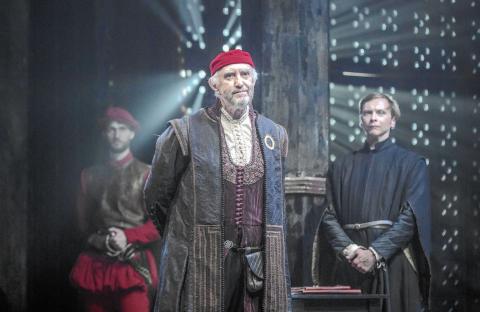"The Merchant of Venice": a brief overview

Very, very unusual piece. Leaving aside duty for Shakespeare the conventions of the story (such as the naive motif of the three caskets, primitive casuistry of a Portion in the decision of the case of the pound of meat, etc.), and go straight to the things that touched my soul. First, it is the militant anti-Semitism. The attacks against Judaism and Jews are rude and full of anger. Surprisingly meet a hatred of Shakespeare. However, here there are nuances. First of all, he did play in the midst of the trial of the court physician, a Jew, charged with the attempted poisoning of Queen Elizabeth.
That is done almost pamphlet (very well crafted, I must say). In addition, Shakir against commercialism and the cold cruelty of Shylock, avoids mention of all sorts of beliefs associated with the Jewish rites. It must be no accident. If he really wanted to smear all Jews with black paint, then I probably would have remembered about "the blood of Christian babies" and all such other matters. Here it is in sight, and Shylock and his comrades are under attack for their usury and increased practicality, devoid of any notions of mercy. When I read the play, I came to the conclusion, that Shakespeare was to oppose Judaism and Christianity. He does it very straightforward and without much imagination.
The Jews in the play entirely barrater and villains (except for Jessica who's happiness! expresses its readiness to convert to Christianity), the Catholics entirely noble people who give their last shirt to a friend. Although here's the paradox from the mouth of the villain Shylock we hear the heartfelt line that the Jews are human beings and as Christians. Must admit, it is dissonant to the basic idea, but it sounds great! And in this particular case, I want to shout: "Bravo!".
Now that made me happy. This cute sketches in between the main action (jokes Lancelot Gobbo, a night tour of Lorenzo and Jessica, the episode with the reveal of the contents of the chests). They make the feeling of a wonderful Christmas tale that makes you look at the piece through a romantic veil. Insert these akin to the cherry on the tip of a very big cake: without them it was possible to do, but they give the General action unique charm, allowing safely call the play a masterpiece. Why, then, not ten, but eight? Yes because the ideas preached in this cute thing, cause I have a rejection. It's like the films of Leni Riefenstahl they are gorgeous, brilliant, delightful, but they were created to support Hitler. And this they cannot be forgiven. When talent is placed at the service of the ugly looks, it's awful.
Just in case I will add more: I have carefully read the afterword, in which he argued that there is nothing anti-Semitic in fact in the play there. But the eye is not fooled. From the play right after climbs hostility to Judaism as a religion, and I'm inclined to trust your impression, not the arguments of the literary critic.
